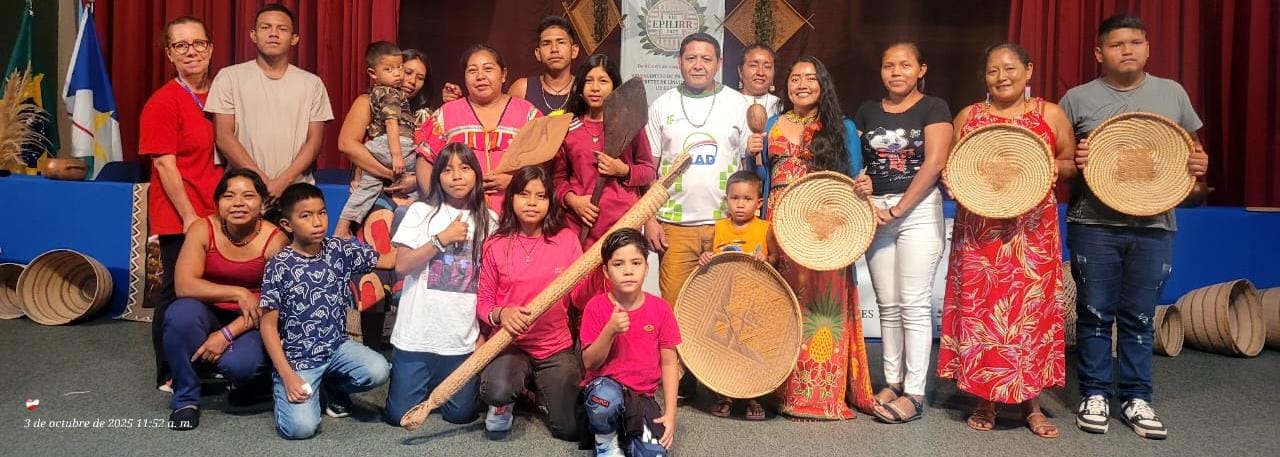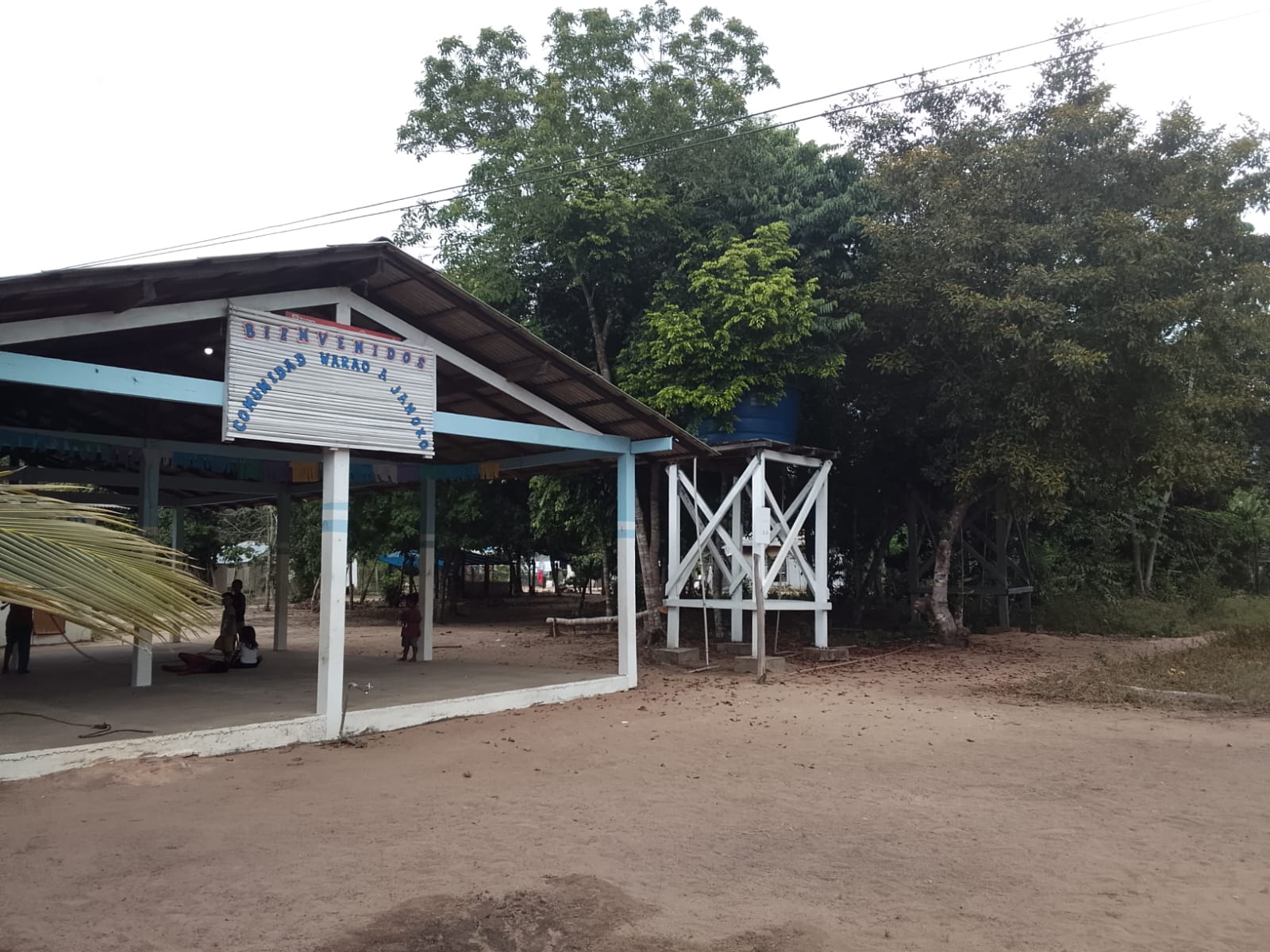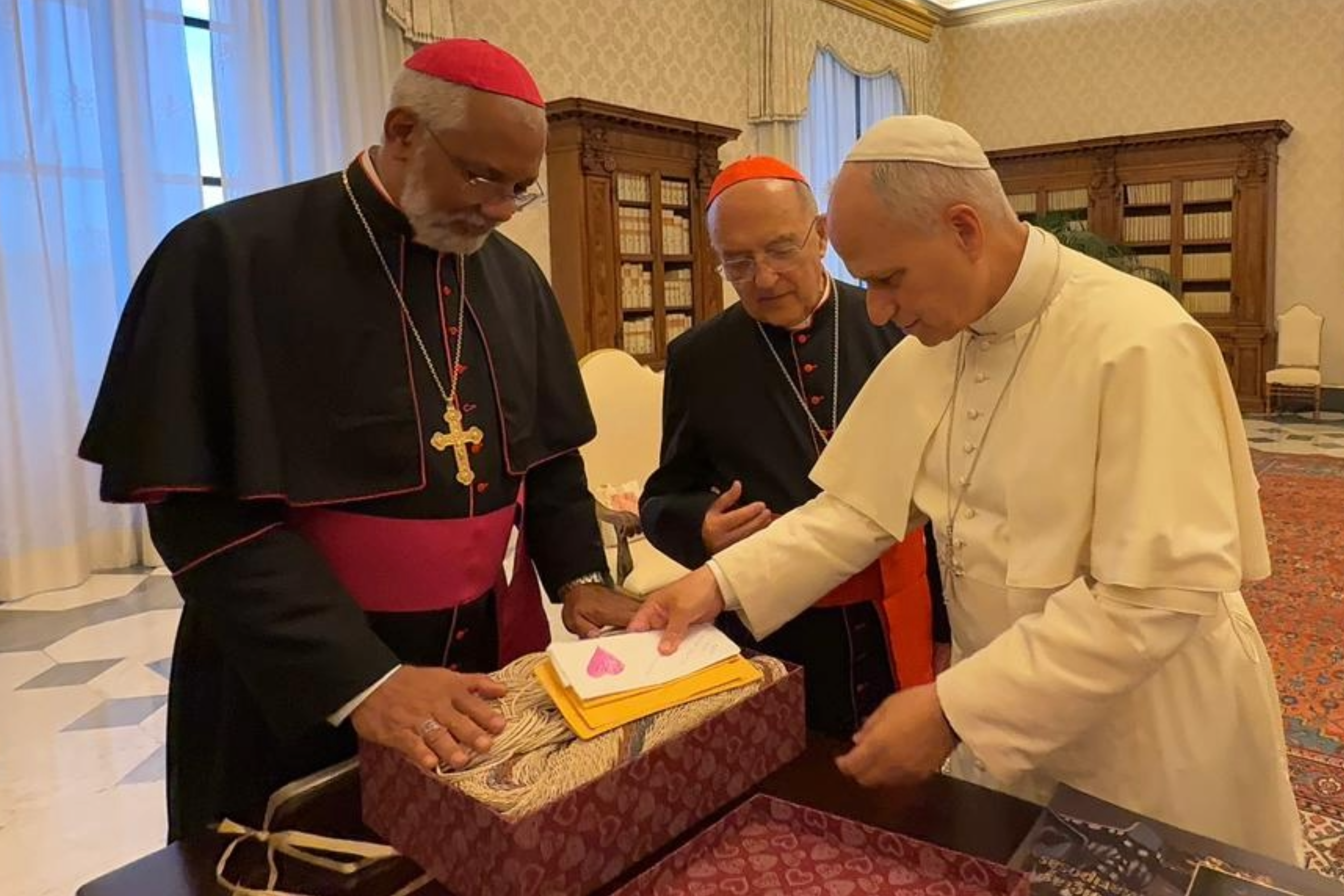During the institutional visit of the Presidency of the Ecclesial Conference of the Amazon (CEAMA) to the Holy See, held from October 23 to 29, 2025, Pope Leo XIV received a deeply symbolic gift: a hammock woven from moriche fiber, made by Karismar Sánchez, an indigenous woman from the Warao people, originally from the state of Delta Amacuro (Venezuela) and currently a migrant in the Janokoida shelter in Boa Vista, Roraima, Brazil.
Woven with hope and fraternity
The hammock—a symbol of rest, gathering, and community in Amazonian culture—was woven with natural moriche fiber (Mauritia flexuosa), extracted from the heart of the palm tree that grows in the humid areas of the Amazon and Orinoquía. This fiber, which is light, soft, and resistant, is traditionally used in the manufacture of hammocks, baskets, and ropes.
The moriche extraction process was carried out in a sustainable manner, as the heart regenerates, allowing the plant to continue its life cycle. Thus, each woven thread became a sign of care for our Common Home, of respect for nature, and of the ancestral wisdom of the Amazonian peoples.
“The hammock represents the Amazon’s embrace of the Pope. It is an expression of the work, hope, and faith of the peoples who, even in the midst of fragility, continue to weave life and communion,” said the CEAMA Presidency during the presentation.
Symbol of Amazonian communion and synodality
The gift to Pope Leo XIV expressed the deep communion between the Amazonian Church and the universal Church, at a time when the synodal path invites us to recognize the concrete faces of faith that are born on the margins and in indigenous peoples.
The chinchorro, woven by migrant hands, embodied the interculturality and fraternity that the Pope promotes, recalling that the mission of the Church is intertwined with the simple gestures and daily life of communities.
This Amazonian gift was not just a piece of craftsmanship: it was a prayer made fiber, a sign of hospitality, and a reminder that hope is also woven with the threads of solidarity.
Voices that cross borders
Along with the hammock, the Presidency of CEAMA presented the Holy Father with letters written by the Warao people, in which they recount their reality marked by migration, poverty, and resilience. In these letters, they express their gratitude and bless Pope Leo XIV, affirming that, even in uncertainty, they maintain the hope of their people, especially their children.
This gesture, born from the heart of the Amazon, reminded us that fraternity has no borders and that, in the living network of the Church, each people has a thread to contribute to the great fabric of communion.
Accompaniment and processes in motion
The Executive Secretary of CEAMA, Marcelo Lemos, who is pursuing his doctorate in Sociology and Anthropology at the Complutense University of Madrid and in International Development and Cooperation at the University of Brasília, facilitated this process of mobilization with the Warao people, strengthening the ties between displaced communities and the Amazonian Church.
In addition to this symbolic gesture, there are plans to continue advancing the Conference’s dialogues with peoples in situations of forced displacement, promoting joint actions of pastoral and social accompaniment.
In close contact with Monsignor Ernesto Romero, Bishop of Tucupita (Venezuela), CEAMA seeks to strengthen opportunities to support displaced communities in the Orinoco Delta, reaffirming the Church’s commitment to those who live on the margins of the Amazon and of history.
For the Executive Secretary,
“the displaced Warao people are undergoing a profound shift in their indigenous self-determination. In our research and meetings, figures such as the teacher and poet Jhon Vargas, the leader Yolis Lyon, the young Andy Tovar, and the chief Santo Tovar point to the strength of that self-determination in the face of humanitarian borders, insufficient public policies, and the denial of the right to territory.”
The Presidency of CEAMA, in the person of Cardinal Pedro Barreto and Monsignor Zenildo Lima, auxiliary archbishop of Manaus, presented the gift to the Holy Father, expressing the desire to continue listening to the peoples in forced displacement in the Amazon, as part of the synodal witness of a Church that walks, dreams, and weaves together with its peoples.



